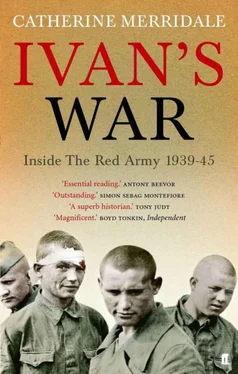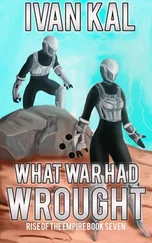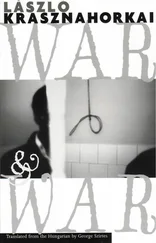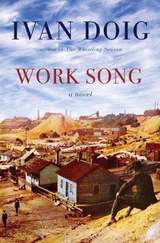Kirill was talented, but he was also lucky. The place they sent him to was more than just a high school offering a bit of rifle practice. His fellow students included Timur Frunze, the son of the late Commissar for War, as well as Sergo Mikoyan, son of the ice-cream king, and even Vasily Stalin. These boys turned up with bodyguards and slipped away in smooth black cars when they had finished class. It would be easy to assume that Kirill, like them, was born to privilege. But his story is complicated, poignant, and in many ways, more typical of his generation. Kirill was neither wealthy nor secure. He did not come from Moscow, or even from Russia, he did not speak the Russian language fluently and when he arrived in the Soviet capital he was penniless. Listening to him, it is not hard to understand why soldiers of his kind were grateful to Stalin’s regime. It is not hard at all to understand their loyalty in war.
Kirill was born in Dubrovno, a small town in rural Belarus, in 1919. His early memories are of the countryside: the horses that came down to the Dnepr river to drink as the sun set, the fields of flax and beets stretching away, the yellow dust in summer and the autumn mud. The whole community was poor. On Saturdays, the girls would walk to town barefoot, carrying their only pair of boots so that the leather would not spoil. His family could not own land because they were Jews. Instead, his mother worked as a weaver at the local factory. It was the main employer, apart from farms, for miles around. Kirill’s father had died of typhus just before the boy was born. He was his mother’s only child. But there were half-brothers and sisters, the children of his father’s first wife, and it was one of these who brought the boy to Moscow. No one suspected that he would decide to train for the artillery, working all night so that he excelled in arithmetic and languages. A teacher noticed him and helped to ease his path to that élite high school, but his whole family would oppose it when he told them what he planned. In reply, all he could say was that he needed an education of some kind. There was no chance of that in Dubrovno. Children who stayed there would barely have learned to read and count before they had to join their parents at the mill.
With Kirill gone, his mother was left alone in the family house. It was her plan to join the others in Russia, but she kept insisting that it would take some time to pack. Kirill dismisses the excuse, seeing instead the inertia, the fear of the unknown, that trapped his mother in her home. ‘Mother was scarcely able to read,’ he continued. ‘It was like that in her village. Almost everyone was illiterate. She wrote me one letter after the war began. I could hardly make it out. The writing was so difficult. She said that she was going to leave, to come to Moscow to our sister. But she never did. She was there when the Germans came. I knew at the time what that would mean, but I waited till the war was over before I went back to find out.’ In 1941, Dubrovno’s Jews were driven like cattle into the main square. When he revisited the place, Kirill asked people who had once been his neighbours to describe what had happened next, but no one chose to recollect the scene. All they could say was that the bodies, probably including his mother’s, lay somewhere in an unmarked trench.
Kirill has reason, then, to thank the Soviet power that saved his life, trained and promoted him, and in some way avenged his mother’s murder. He is nostalgic for the Soviet past, though not for Dubrovno or poverty. What he remembers is the discipline that formed him, the rewards for hard work, and his own faith in victory. He knew the system had its cruel side. He had seen plenty as a child. Dubrovno was not far from the Ukrainian border, and the refugees from the successive famines there began to turn up after 1929. They brought their stories of collectivization, of the slaughter of animals, the looting, the fear. Soon after that, his own family too was hungry, though the potatoes they grew on a corner of land saved them from real starvation. Nothing would shake the young man’s faith in socialism. What he went on to witness in the war would make his belief firmer still. He still thinks that collectivization brought more benefits than costs. The horses grew thinner, he remembers. People were hungry for a while. But all this was just a prelude. In time, the peasants would have tractors, each of which could do the work of a dozen men. One day there would also be hot water and electric light. Kirill was back in Tallinn later in the war. He saw what Nazi rule had done. He knew, and not from that visit alone, which system had destroyed his world and which rebuilt it brick by brick.

‘Education has brought amazing results,’ a German officer discovered as he marched through Soviet territory in the summer of 1941. ‘On the wall of every Russian schoolroom I found a large map of Europe and Asia on which all of Russia was marked in bright red while the rest was shown without color. The insignificant size of the European peninsula was contrasted unmistakably with the vastness of Russia.’ Beyond the schoolrooms, he reported little scepticism in adults below the age of fifty. Only the very old or the religious dared to be critical of Soviet power. ‘I talked with many young soldiers,’ he reported, ‘farmers, labourers, and also women. All of their thinking was patterned along the same line, and they were all convinced of the infallibility of that which they had been taught.’ Twenty years of schooling and propaganda seemed to have worked. To the officer’s racist surprise – for he considered Russians to be inert and long-suffering, more animal than man – the state had even instilled the need for ‘enthusiasm, initiative and vigor, the most essential prerequisites for great accomplishments not only in peace, but still more in war’. 22
What this German was observing was the impact of a national policy whose aim, for twenty years, had been to engineer new kinds of consciousness among the young. There was still widespread hardship, to say nothing of resentment of the collectives and of harsh working regimes in factories and on construction sites, but the crucial generations, the soldiers who would fight at Stalingrad and Kursk, were born into the Soviet system and knew no other. Though older people might never be reconciled to the new world, and even younger ones made jokes and cynical remarks, the language and priorities of Soviet communism provided the war generation with the only mental world they knew, not least because alternatives were excluded. Even the offspring of peasants, the most resentful section of the population, had no chance of developing a different political outlook, or not, at least, in public. Children’s training began from the moment they stepped through the door of their infant school. As future Soviet citizens, they would start to learn about the revolution as soon as they could pick out the Cyrillic letters forming Stalin’s name. Where once their grandparents had chorused extracts from the psalms, these children chanted lessons on the triumphs of electrification, science, and communist morality. They also learned to be grateful that their elementary schools existed in the first place, for it was the Soviet regime, they were told, that cared to cultivate their literacy. 23By 1941, there were 191,500 primary schools among the Soviet Union’s villages and farms. Twenty-four million children were enrolled in them. If they worked hard, the best of them might be picked to join the 800,000 youngsters who enrolled each year in the country’s 817 colleges and universities. The very fortunate might even win a place at one of the Red Army’s special military academies. 24
Читать дальше













